Summer storms can provide much-needed rain, but they can also wreak havoc on your irrigation system. With the unpredictable weather patterns in Central Florida, it’s crucial to ensure your irrigation system operates efficiently. Too much water can be just as harmful to your lawn as too little.
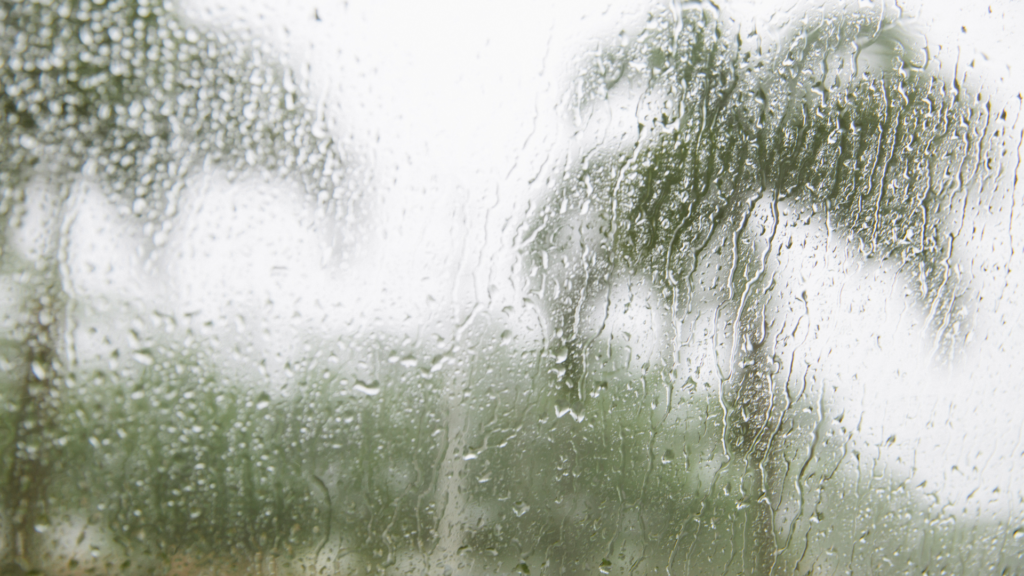
Understanding how to adjust your irrigation settings, clean sprinkler heads, and install useful tools can help you maintain a healthy lawn. Efficient irrigation not only conserves water but also saves you money on your utility bills. Proper maintenance and adjustments can prevent overwatering, which can lead to root rot and other lawn issues.
With that in mind, we’ll cover essential tips and techniques to optimize your irrigation system during summer storms. From installing rain sensors to adjusting watering schedules, these steps will help you manage your lawn more effectively. By taking proactive measures, you can enjoy a lush, green lawn without the stress of weather-related damage.
Understanding the Impact of Summer Storms on Irrigation Systems
Summer storms can bring heavy rainfall, strong winds, and sometimes even lightning. All these factors can affect the way your irrigation system operates. Too much rain can lead to overwatering, which harms your lawn. Wind can misdirect sprinkler patterns, wasting water and missing key areas that need hydration.
Storms can also cause debris to clog sprinkler heads and damage electronic components like timers and controllers. These issues can lead to inefficient watering and increased water bills. Knowing the potential impacts of summer storms helps you take steps to protect your irrigation system and keep it running smoothly.
By understanding the effects of storms, you can better prepare your lawn and irrigation system to handle the weather. Regular maintenance and smart adjustments can save water, reduce costs, and keep your lawn healthy.
Benefits of an Efficient Irrigation System
An efficient irrigation system provides numerous benefits. First, it ensures your lawn gets the right amount of water, promoting healthy growth and reducing the risk of diseases. A well-maintained system also conserves water by minimizing waste, which is environmentally friendly and can lower your water bill.
Efficient systems can also save you time. With features like timers and rain sensors, you don’t have to worry about manually adjusting your irrigation settings. These systems adapt to weather conditions automatically, ensuring your lawn gets the care it needs, regardless of the weather.
Finally, an efficient irrigation system adds value to your property. A lush, green lawn enhances curb appeal and creates a welcoming environment. By investing in a quality irrigation setup, you improve the overall look and health of your outdoor space.
Assessing Your Current Irrigation Setup
Before making any improvements, it’s essential to assess your current irrigation setup. Start by checking the condition of your equipment. Look for any signs of wear and tear, such as cracked pipes, broken sprinkler heads, or leaks. Identifying these issues early allows you to fix them before they cause significant damage.
Next, evaluate your watering schedule. Make sure your system is set to water your lawn at the optimal times. Early morning is usually best, as it reduces evaporation and allows the grass to dry before nightfall, which helps prevent fungal diseases.
Consider the coverage of your sprinkler heads. Ensure they distribute water evenly across your lawn. You can do this by placing empty containers around your yard and running your system for a set period. Check the water levels in each container to see if they’re consistent. If not, adjust your sprinklers to provide even coverage.
Inspecting and Cleaning Sprinkler Heads
Regularly inspecting and cleaning your sprinkler heads is crucial for maintaining an efficient irrigation system. Over time, dirt, debris, and grass clippings can clog sprinkler heads, reducing their effectiveness.
Start by turning off your irrigation system. Remove each sprinkler head and rinse it thoroughly with water. Use a small brush to scrub away any stubborn dirt or debris. If necessary, soak the heads in a vinegar solution to break down mineral deposits.
Once the heads are clean, check for any signs of damage. Look for cracks, wear, or missing parts. Replace any damaged components to ensure your system operates efficiently.
Reinstall the cleaned heads and test your system to make sure they are working correctly. Properly functioning sprinkler heads provide even water distribution, ensuring your lawn gets the care it needs.
Regularly maintaining your sprinkler heads can prevent clogs, save water, and keep your lawn looking its best all summer long.
Adjusting Watering Schedules for Stormy Weather
Stormy weather changes how you should water your lawn. Adjusting your watering schedule is key to keeping your irrigation system efficient and your lawn healthy. During periods of frequent rain, you should reduce the amount of water your system delivers to avoid overwatering.
Consider watering less frequently or for shorter durations. You can adjust the timers on your irrigation system to account for the rainfall. Check your local weather forecast regularly to make informed decisions about when to water.
Another tip is to water early in the morning. This helps the grass dry out during the day, reducing the risk of fungal growth. If a storm is predicted, turn off your irrigation system a day or two in advance to let nature take over. By adjusting your watering schedules, you ensure that your lawn gets just the right amount of water without wasting resources.
Installing Rain Sensors: A Smart Move
A rain sensor is a simple device that can make a big difference. It prevents your irrigation system from running during or after a rainstorm, saving water and preventing overwatering. Installing a rain sensor is an easy, cost-effective upgrade for any irrigation setup.
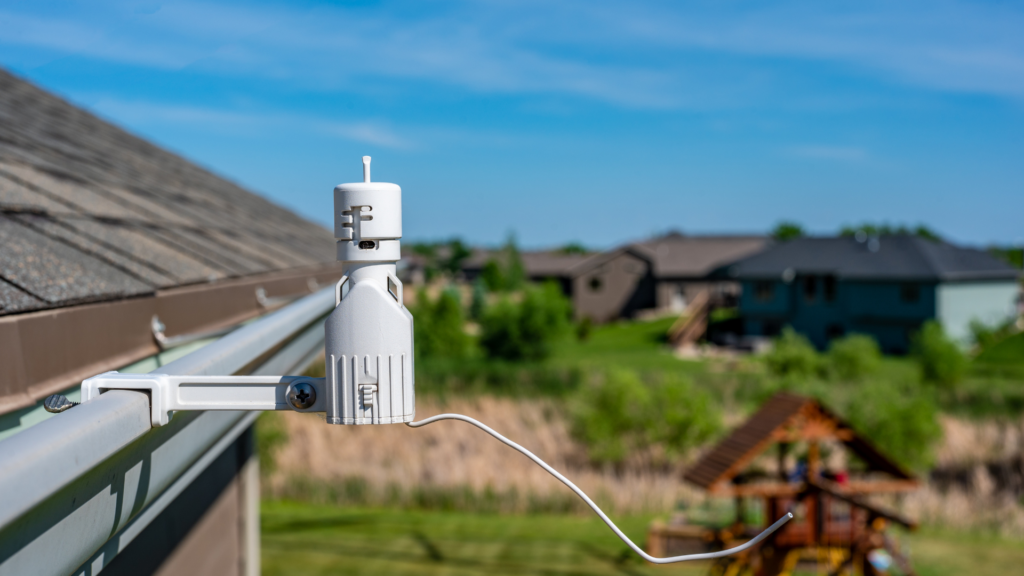
Rain sensors attach to your irrigation control system. When they detect rain, they temporarily shut off your system. Once the sensor dries out, your irrigation system will resume its normal schedule. This ensures that your grass is not watered unnecessarily, which can cause root rot and other issues.
Choose a rain sensor that is compatible with your existing irrigation controller. Most sensors are easy to install and require minimal maintenance. They are a smart investment that pays off quickly by conserving water and keeping your lawn healthy.
Avoiding Overwatering During Heavy Rains
Overwatering can harm your lawn as much as under-watering. When heavy rains hit, it is essential to manage your irrigation system to prevent this problem. Here are some tips to avoid overwatering:
1. Monitor Rainfall: Use a rain gauge to track how much rain your lawn receives. Adjust your irrigation accordingly to account for natural water.
2. Use Mulch: Mulching around plants helps retain moisture in the soil, reducing the need for frequent watering.
3. Install a Smart Controller: These controllers adjust water output based on current weather conditions and soil moisture levels.
By following these steps, you can ensure your lawn doesn’t get too much water during heavy rains. Proper water management keeps your grass healthy and prevents issues like mold and root disease.
Upgrading to Weather-Based Controllers
Weather-based controllers are a smart choice for optimizing your irrigation system. These devices adjust watering schedules based on real-time weather data, ensuring your lawn gets the right amount of water. This is especially helpful during unpredictable summer storms.
The controllers use local weather stations or on-site sensors to monitor temperature, humidity, and rainfall. They automatically adjust the watering schedule to fit the current conditions. This reduces water waste and promotes a healthier lawn.
Installing a weather-based controller is straightforward. Choose a controller compatible with your existing system. Follow the manufacturer’s instructions for installation and setup. Once installed, you can customize settings based on your lawn’s specific needs.
Upgrading to a weather-based controller brings many benefits. It reduces water usage, lowers your water bill, and ensures your lawn stays green and healthy. Investing in this technology makes managing your irrigation system simpler and more efficient.
Maintenance Tips for Irrigation Systems During Summer
Keeping your irrigation system in top shape during the summer is crucial. Here are some maintenance tips to help you avoid problems and ensure your system runs efficiently:
1. Check for Leaks: Inspect your irrigation system for any leaks. Even small leaks can waste water and affect your lawn’s health.
2. Clean Filters: Dirty filters can reduce water flow and cause your system to work harder. Clean or replace them regularly.
3. Test the System: Run your irrigation system to check that all parts are working correctly. Look for clogged or broken sprinkler heads.
4. Adjust Sprinkler Heads: Make sure your sprinkler heads are correctly aligned. This ensures water is spread evenly across your lawn.
Common Problems and DIY Fixes for Irrigation Systems
Irrigation systems can face various problems, especially during the summer. Here are some common issues and how to fix them yourself:
1. Clogged Sprinkler Heads: Remove the nozzle and clean it. Use a small wire to clear any obstructions.
2. Low Water Pressure: Check for leaks or broken pipes. Ensure valves are fully open.
3. Uneven Watering: Adjust the sprinkler heads to ensure they cover the entire lawn. Replace any damaged heads.
4. Timing Issues: Check the timer settings. Ensure you have set the right days and times for watering.
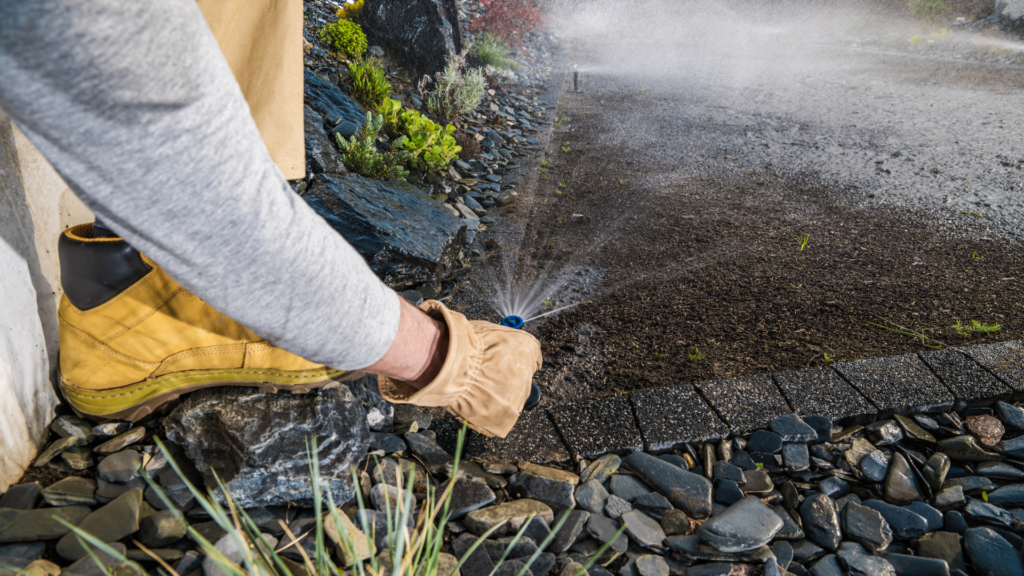
The Importance of Professional Inspections
While DIY fixes are great, sometimes you need a professional to take a closer look. Regular professional inspections can help catch problems before they become costly repairs. Professionals can:
1. Identify Hidden Issues: Some problems may not be easily visible. Professionals have the tools and knowledge to find hidden issues.
2. Optimize your System: They can make adjustments to optimize your system’s performance, ensuring efficient water usage.3. Provide Expert Advice: Get recommendations on upgrades or changes that can further improve your system.
How Next Level Turf Can Improve Your Irrigation System
If you want your irrigation system to perform at its best, Next Level Turf can help. We offer a range of services to improve your system and keep your lawn healthy.
Our Services Include:
1. System Inspections: We thoroughly inspect your irrigation system to find and fix any issues.
2. Upgrades and Repairs: Whether you need a simple repair or a complete system upgrade, we have you covered.
3. Customized Solutions: We provide solutions tailored to your lawn’s specific needs and condition.
Protect Your Lawn: Summer Storm Irrigation
Making sure your irrigation system is in good shape is essential, especially during the summer months. Proper maintenance, quick DIY fixes, and professional help can keep your system running smoothly. By following these tips, you can avoid overwatering and ensure your lawn gets the right amount of water, even during stormy weather.
If your irrigation system needs a thorough check or an upgrade, Next Level Turf is here to help. Contact us today for a professional inspection, and let us help you keep your lawn looking its best. Trust us to take your irrigation system in Florida to the next level and enjoy a healthy, green lawn all summer long!

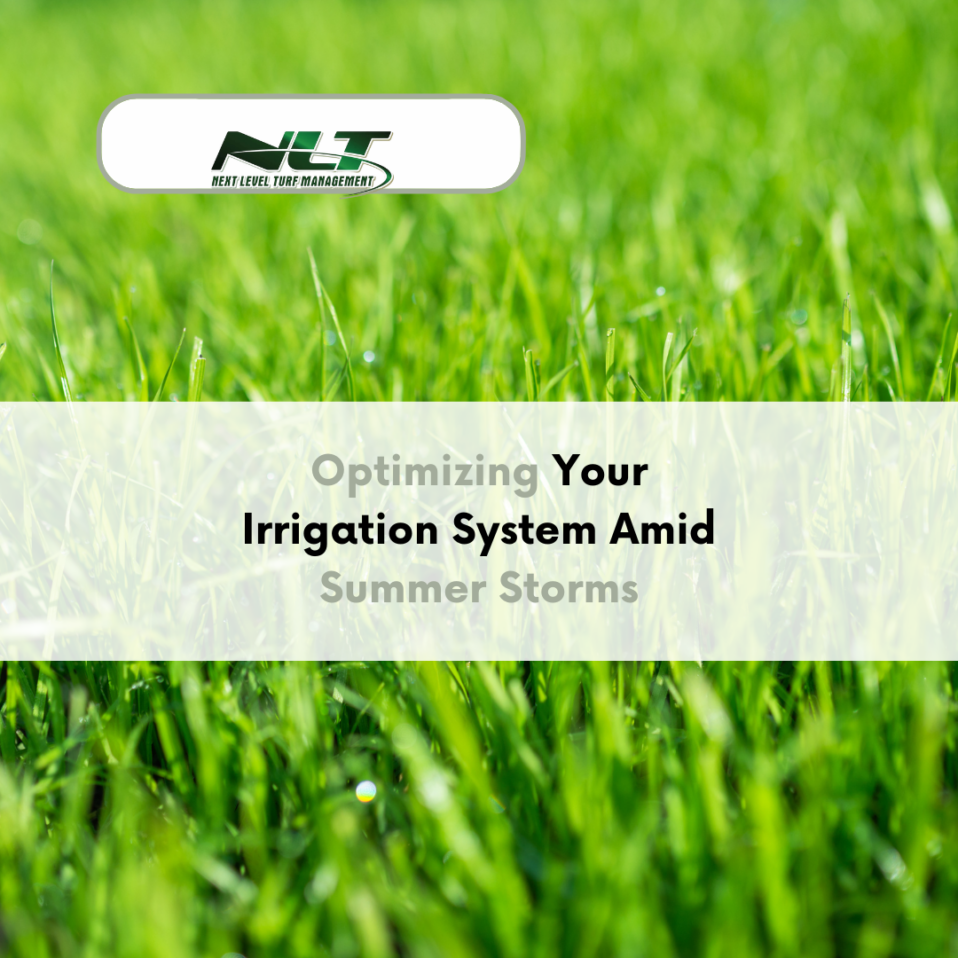

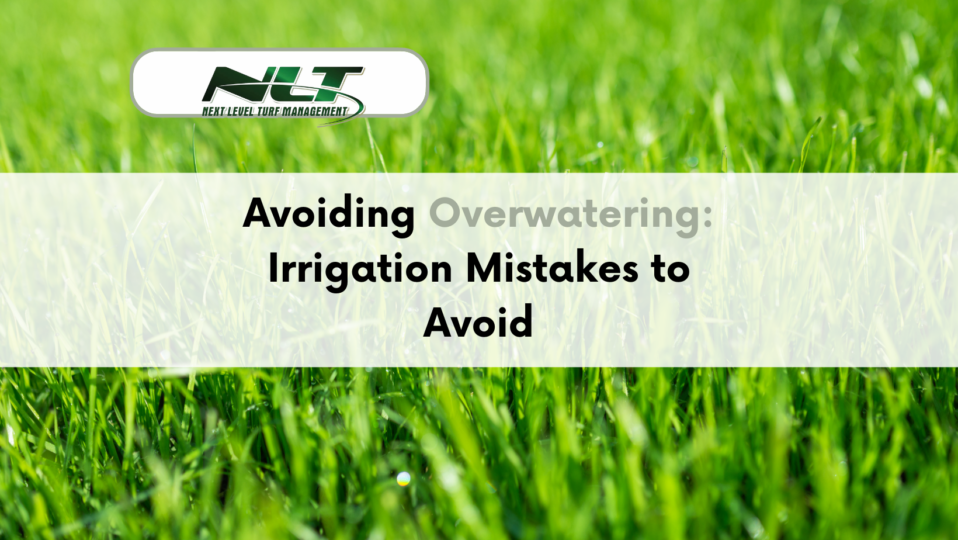
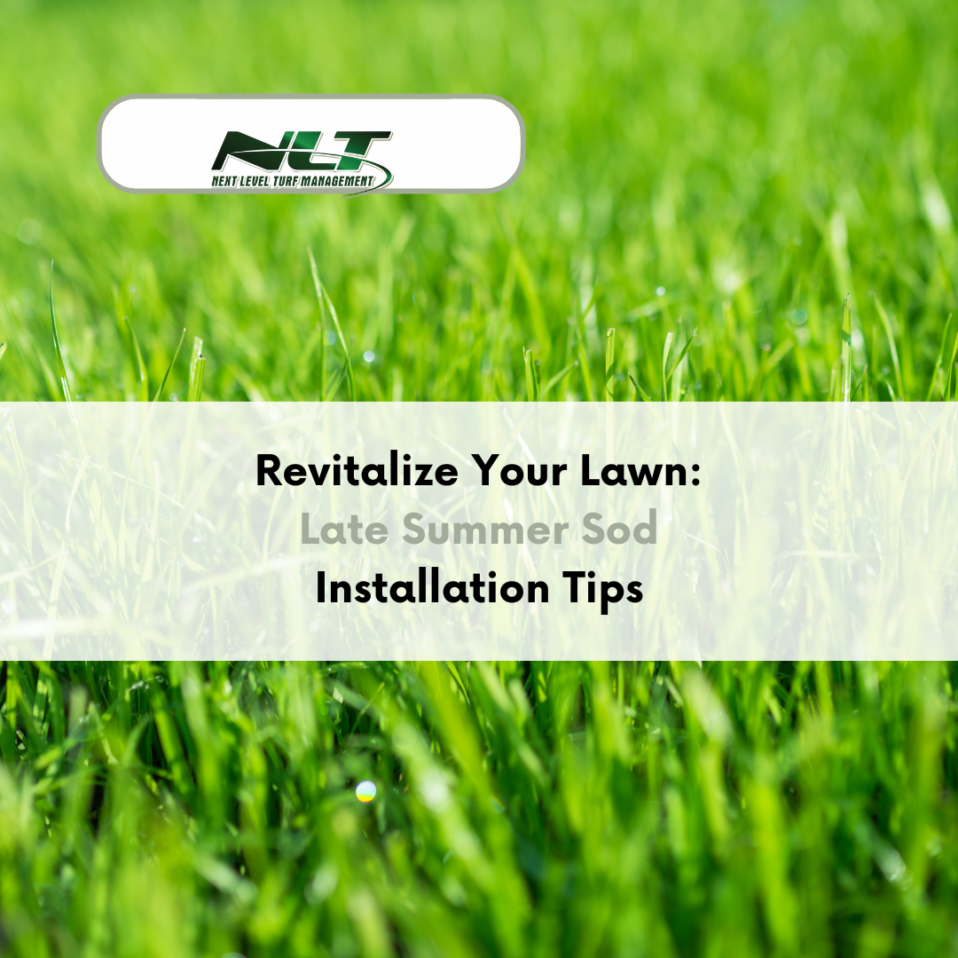


Post a comment